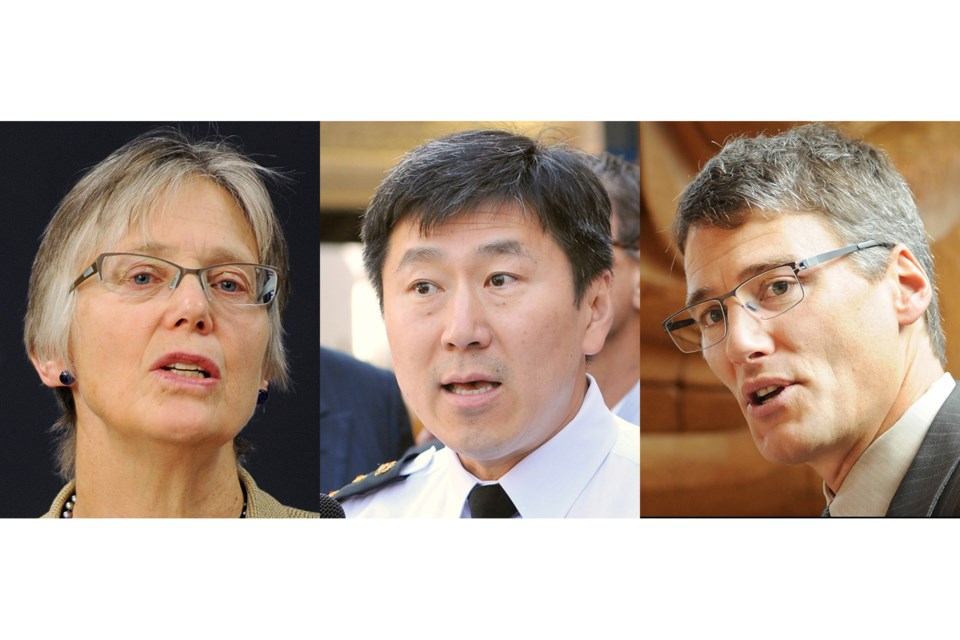So you’ve probably heard our world-class city is experiencing a disturbing trend of more people suffering from severe, untreated mental illnesses and causing problems for authorities.
A crisis is how Mayor Gregor Robertson and Police Chief Jim Chu have described what’s happening on city streets and they’ve provided the sad and violent stories over the past two months as evidence.
In one 15-month period, 26 innocent victims were attacked and injured, some very seriously, in 11 separate incidents. Police have said 21 per cent of calls they handle every day are related to mental illness.
No doubt there’s a problem that needs to be addressed.
But when I hear the mayor and the chief — and last Tuesday at council, city manager Penny Ballem — talk about a “five-fold increase” in the number of section 28 Mental Health Act apprehensions police made since 2002, I’m left scratching my head.
I’ll tell you why…
As I learned in July this year when I wrote a story about the number of arrests police made under the Mental Health Act, police have changed the way they record interactions with mentally ill people.
Prior to 2010, police would not record an incident under the Act if, say, a person voluntarily decided to check in to a hospital rather than be escorted by an officer. A policy change in late 2009 directed police to record all interactions, regardless of whether the officer escorts a person to hospital.
So when you look at stats for 2002, police recorded 539 incidents under the Act. In 2012, with the shift in policy, that number jumped to 2,636. In other words, “a five-fold increase.”
See what I’m getting at, here?
You can’t say there’s been a “five-fold increase” because there was no consistent record keeping of apprehensions under the Act that could allow the mayor, police chief and city manager to give an accurate picture of the incidents between 2002 and 2012.
The more accurate period is from 2010 to 2012.
In 2010, there were 2,278 incidents and that jumped to 2,489 in 2011. And I’ve already written there were 2,636 in 2012. So, yes, you can accurately say police arrested 358 more people under the Act in 2012 than in 2010.
And, as police recently released, the number of incidents recorded under the Act this year is already 23 per cent higher than 2012. So, as I said, there is a significant problem that needs to be addressed in Vancouver.
But telling the story of that significant problem — or crisis, as it’s been dubbed by the mayor and police chief — with accurate facts would be helpful when Robertson convenes his task force on mental health and addictions before the end of the year.
Yes, it’s a crisis
Spoke to provincial Health Minister Terry Lake last week about Robertson calling for the province and the feds to do more to help mentally ill people. Maybe you read my story. What I didn’t include in the story was Lake’s response to whether it was fair to describe the mental health situation in Vancouver as a crisis.
Here’s what he said: “A crisis is something that needs action. We’re taking action. It’s been a crisis since 2007. What I’m trying to say is that we’ve been dealing with it in a structured way. Are there more things that we can do? That’s what I want to find out.”
mhowell@vancourier.com
twitter.com/Howellings



